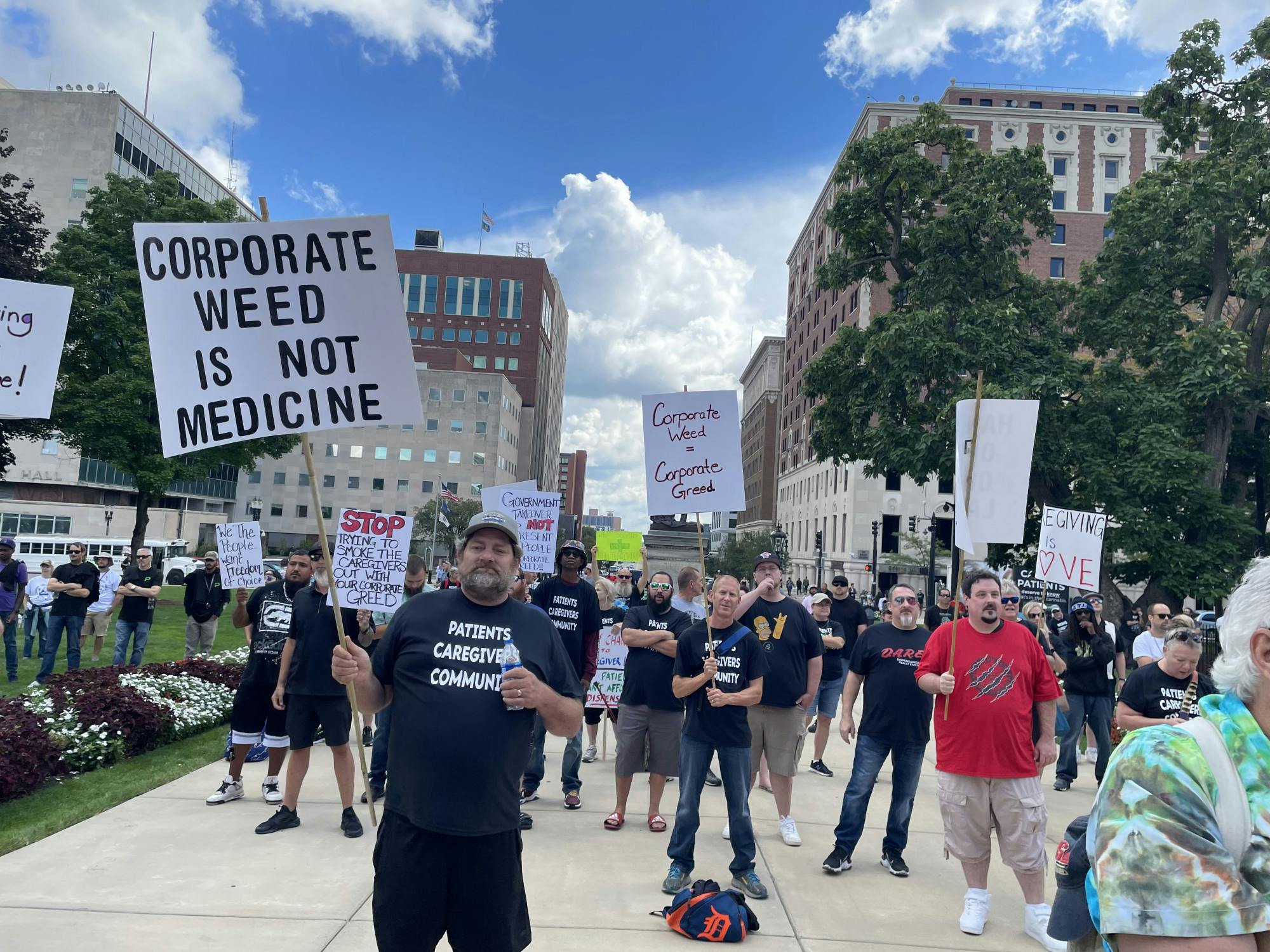On Sept. 15, 2021, cannabis caregivers and growers rallied at the Capitol in response to changes in laws that pushes out medical marijuana caregivers.
The rally was organized by medical marijuana caregiver Ryan Bringold who, as well as many others at the rally, contributed to legalize marijuana through grassroots efforts and rallies such as "Hash Bash".
According to marijuanamoment.net, caregivers like Bringold feel that "as larger licensed recreational and medical cannabis grow facilities and provisioning centers crop up across Michigan, caregivers who helped legalize marijuana are being pushed out."
"We fought for this law as caregivers!" owner of Captain Kirk's Edibles in Ann Arbor Kirk Reid said. "We were the ones feeding the medical patients, so remember this: Who the hell did [corporate] learn how to grow from?"
Proposed changes to the current caregiver law include the allowance of registered caregivers to only grow for one patient instead of five. To keep growing for five patients, one would need a specialty medical grower license.
Caregiver and Lawyer Neil Vora posted on his Instagram, @michigan_cannabis_lawyer, what this license entails.
In order to obtain a license, there is a $500 application fee. Additionally, your spouse must also qualify legally and cannot also be a licensed grower, an employee at a grow or processing facility or hold interest in a testing facility or secure transport. Additionally, the Marijuana Regulatory Agency, or MRA, may establish a limit this license type can sell to a licensed grower.
What increases the frustration of caregivers is that these new proposed changes also include "inspections at any time by law enforcement, and the MRA may suspend or revoke your license at any time without notice or hearing if you negatively impact the health of your patients or the public."
This new proposal raises some costs and risks for both patients and caregivers. As a patient, your caregiver can be gone at a moment's notice. As a caregiver, you can no longer grow for more than one patient unless you pay $500 in application fees.
In addition, caregivers now have to pay for a facility, secure transport, testing, security and two additional authorized assistants.
"If you do go above your allowable quantity, law enforcement can confiscate or destroy your marijuana and equipment even if it isn't at your facility; whatever is in your ownership," Vora posted on his Instagram.
Rally member Stephen Monti said the initial system that included caregivers and patients had been "working fantastically" since it was adopted.
"We currently have 30,000 caregivers providing plenty of quality medication to the patients that have been dependent on it -- with no hiccups," Monti said. "Now, we have the Michigan Cannabis Manufacturers Association, a group of heavily funded growers, who have determined that they have a revenue leak -- is caregivers. So, what they want to do is almost completely abolish the voter-initiated legislation; they're going against the will of the voters."
In order for this proposal to be passed, it requires a two-thirds supermajority. However, Monti said the two co-sponsors of the legislation belong to different political parties, so the bill already has bipartisan support.
"It's really a case of corporate, crony capitalism, as opposed to a left or right-wing issue," Monti said.
According to Monti, the proposed legislation comes with serious risks to all involved.
"Aside from caregivers who are being compensated for their labor, losing their labor -- hurting the working person; ultimately, it's going to reduce the genetic diversity of the medicine available," Monti said. "It's going to become more susceptible to large corporate decisions that could cost the patients both the access and even more so financially. Some of whom may not be able to afford an increase in their medication.
"That's not what the people in Michigan want. That's not what they voted for, and we're here to show them that we're still in charge."
Support student media!
Please consider donating to The State News and help fund the future of journalism.
Discussion
Share and discuss “'We're not easy targets anymore': Caregivers rally at the Capitol” on social media.







